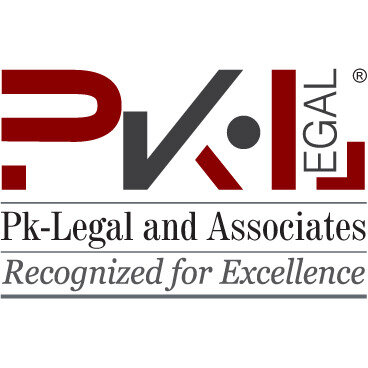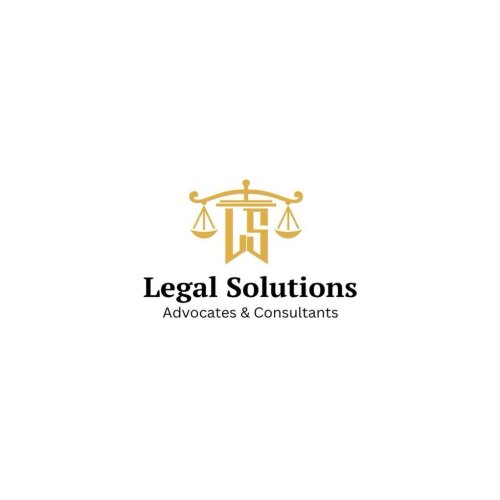Best Energy, Environment & ESG Lawyers in Rawalpindi
Share your needs with us, get contacted by law firms.
Free. Takes 2 min.
List of the best lawyers in Rawalpindi, Pakistan
About Energy, Environment & ESG Law in Rawalpindi, Pakistan
Energy, Environment, and Environmental, Social, and Governance (ESG) law in Rawalpindi, Pakistan is a dynamic and evolving field. Rawalpindi, located near Islamabad, is a bustling city with a growing industrial and commercial footprint. The demand for energy is significant, and industries must comply with laws that balance economic growth and environmental protection. ESG principles are also gaining traction, especially among companies that attract international investors or operate in regulated sectors. These laws and practices govern how energy is produced, distributed, and consumed, as well as how environmental impacts are managed and minimized, and mandate transparency and responsible governance in business operations.
Why You May Need a Lawyer
Legal advice in the field of Energy, Environment & ESG in Rawalpindi, Pakistan may be necessary in several situations. Common reasons include:
- Navigating the complex regulatory framework for setting up or operating energy projects, whether conventional or renewable. - Handling compliance issues or violations related to environmental laws, including environmental impact assessments, emission standards, or waste disposal regulations. - Responding to notices or enforcement actions from environmental protection agencies or local authorities. - Developing and implementing ESG policies or responding to ESG reporting requirements, particularly if your business seeks financing or partnerships with international firms. - Managing disputes with other businesses, government authorities, or local communities regarding energy use, environmental impacts, or social and governance matters. - Acquiring permits or licenses for energy, power, or manufacturing projects. - Addressing liability issues arising from pollution or environmental damage. - Participating in government tenders or public-private partnerships in the energy sector. - Ensuring compliance in mergers, acquisitions, or corporate restructuring involving energy or environment-sensitive assets. A skilled lawyer can help clarify obligations, guide compliance, and represent your interests in negotiations, litigation, or administrative proceedings.
Local Laws Overview
Pakistan’s legal framework for energy and environmental regulation is a mix of federal and provincial laws. Key regulatory areas relevant to Rawalpindi include:
- Environmental Protection: The Pakistan Environmental Protection Act, 1997 empowers the Pakistan Environmental Protection Agency (Pak-EPA) and the Punjab Environmental Protection Department to oversee environmental compliance. Environmental Impact Assessments (EIA) or Initial Environmental Examinations (IEE) are mandatory for many industrial, infrastructure, and energy projects. - Energy Regulation: The National Electric Power Regulatory Authority (NEPRA) regulates electricity production, transmission, and distribution. Several laws also address renewable energy, fuel standards, and safety. - Water and Air Quality: National and provincial rules set limits for emissions and discharges from industrial activities. Rawalpindi falls under the jurisdiction of the Punjab Environmental Protection Agency, which enforces standards for water, air, and soil quality. - Waste Management: Rules for hazardous waste, solid waste, and industrial effluents are actively enforced, with requirements for safe disposal and recycling. - ESG Policies: While not always a legal requirement, many companies in Pakistan voluntarily adopt ESG policies to attract investment, ensure compliance with international obligations, and demonstrate corporate responsibility. Reporting standards and disclosures may apply for companies listed on the Pakistan Stock Exchange. - Local Jurisdictions: The Rawalpindi Municipal Corporation and other local authorities may have additional by-laws affecting energy use, noise levels, construction, and environmental practices.
Frequently Asked Questions
What is an Environmental Impact Assessment (EIA) in Rawalpindi?
An EIA is a mandatory study required for certain projects to assess their potential environmental impacts and outline mitigation measures. It must be submitted to the relevant environmental authority, such as the Punjab EPA, for approval before work can begin.
Who regulates energy projects in Rawalpindi?
Energy projects are regulated by federal bodies like NEPRA and local authorities including the Punjab Power Development Board. The type of project determines the specific regulator.
What are the penalties for violating environmental laws in Rawalpindi?
Penalties can include fines, suspension or closure of operations, and, in severe cases, imprisonment. The exact penalty depends on the nature of the violation and its impact.
Do ESG requirements apply to small businesses in Rawalpindi?
ESG requirements are generally more relevant for large corporations and businesses seeking global investors. However, compliance with basic environmental and social standards benefits all businesses, including SMEs.
How can I obtain an energy license for a new project?
You must apply to the relevant authority, such as NEPRA or the Punjab regulatory bodies, submit required documents, and complete technical and safety reviews before receiving a license.
What should I do if I receive an environmental notice or penalty?
Consult with a lawyer immediately, review the notice, and prepare a response or appeal. Legal help can ensure your rights are protected and assist in negotiations with authorities.
Are there incentives for renewable energy projects in Rawalpindi?
Yes, the government offers incentives such as tax breaks, customs exemptions, and priority for grid connection to encourage renewable energy investments.
Can I challenge a competitor’s project on environmental grounds?
Yes, you can file a complaint or legal action if a competitor’s project violates environmental laws or causes harm. A lawyer can help assess the strength of your case and guide the process.
Are environmental clearances required for all development projects?
Not all projects require environmental clearances, but most industrial, energy, infrastructure, or large-scale developments do. The need depends on the scale and nature of the project, as outlined in local regulations.
What is the role of local government in environmental regulation?
Local authorities in Rawalpindi enforce specific by-laws related to waste management, noise, air pollution, and construction standards in addition to provincial and federal regulations.
Additional Resources
For those seeking more information or direct support, consider the following resources:
- Pakistan Environmental Protection Agency (Pak-EPA) - Punjab Environmental Protection Department (Punjab-EPA) - National Electric Power Regulatory Authority (NEPRA) - Alternative Energy Development Board (AEDB) - Rawalpindi Municipal Corporation - Local offices of the Pakistan Bar Council for lawyer referrals - Ministry of Climate Change, Government of Pakistan - Securities and Exchange Commission of Pakistan (for ESG-related corporate matters)
Next Steps
If you believe you require legal assistance related to energy, environment, or ESG issues in Rawalpindi, take the following steps:
- Collect all relevant documents, including permits, regulatory notices, contracts, and correspondences. - Identify your specific legal needs or questions, such as compliance, litigation, obtaining permits, or responding to enforcement actions. - Consult a qualified legal practitioner in Rawalpindi with experience in energy, environmental, or ESG law. - Prepare to discuss your situation in detail so the lawyer can assess your case and advise you appropriately. - Stay informed about changes in local and federal regulations as they may affect your rights and obligations. Seeking timely legal advice can help you avoid penalties, maintain compliance, and achieve your business or personal objectives in the energy and environmental sectors.
Lawzana helps you find the best lawyers and law firms in Rawalpindi through a curated and pre-screened list of qualified legal professionals. Our platform offers rankings and detailed profiles of attorneys and law firms, allowing you to compare based on practice areas, including Energy, Environment & ESG, experience, and client feedback.
Each profile includes a description of the firm's areas of practice, client reviews, team members and partners, year of establishment, spoken languages, office locations, contact information, social media presence, and any published articles or resources. Most firms on our platform speak English and are experienced in both local and international legal matters.
Get a quote from top-rated law firms in Rawalpindi, Pakistan — quickly, securely, and without unnecessary hassle.
Disclaimer:
The information provided on this page is for general informational purposes only and does not constitute legal advice. While we strive to ensure the accuracy and relevance of the content, legal information may change over time, and interpretations of the law can vary. You should always consult with a qualified legal professional for advice specific to your situation.
We disclaim all liability for actions taken or not taken based on the content of this page. If you believe any information is incorrect or outdated, please contact us, and we will review and update it where appropriate.
Browse energy, environment & esg law firms by service in Rawalpindi, Pakistan
Rawalpindi, Pakistan Attorneys in related practice areas.












